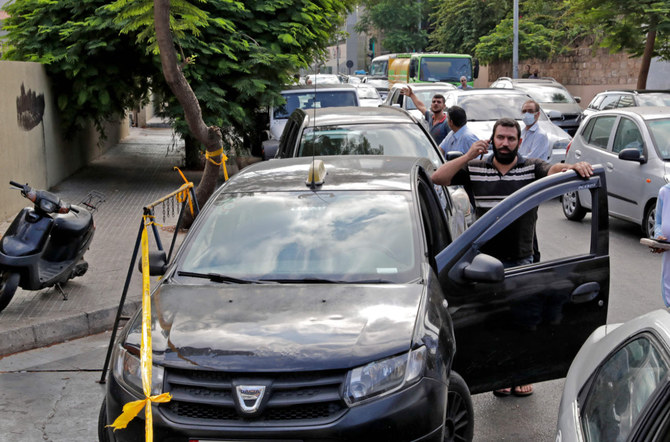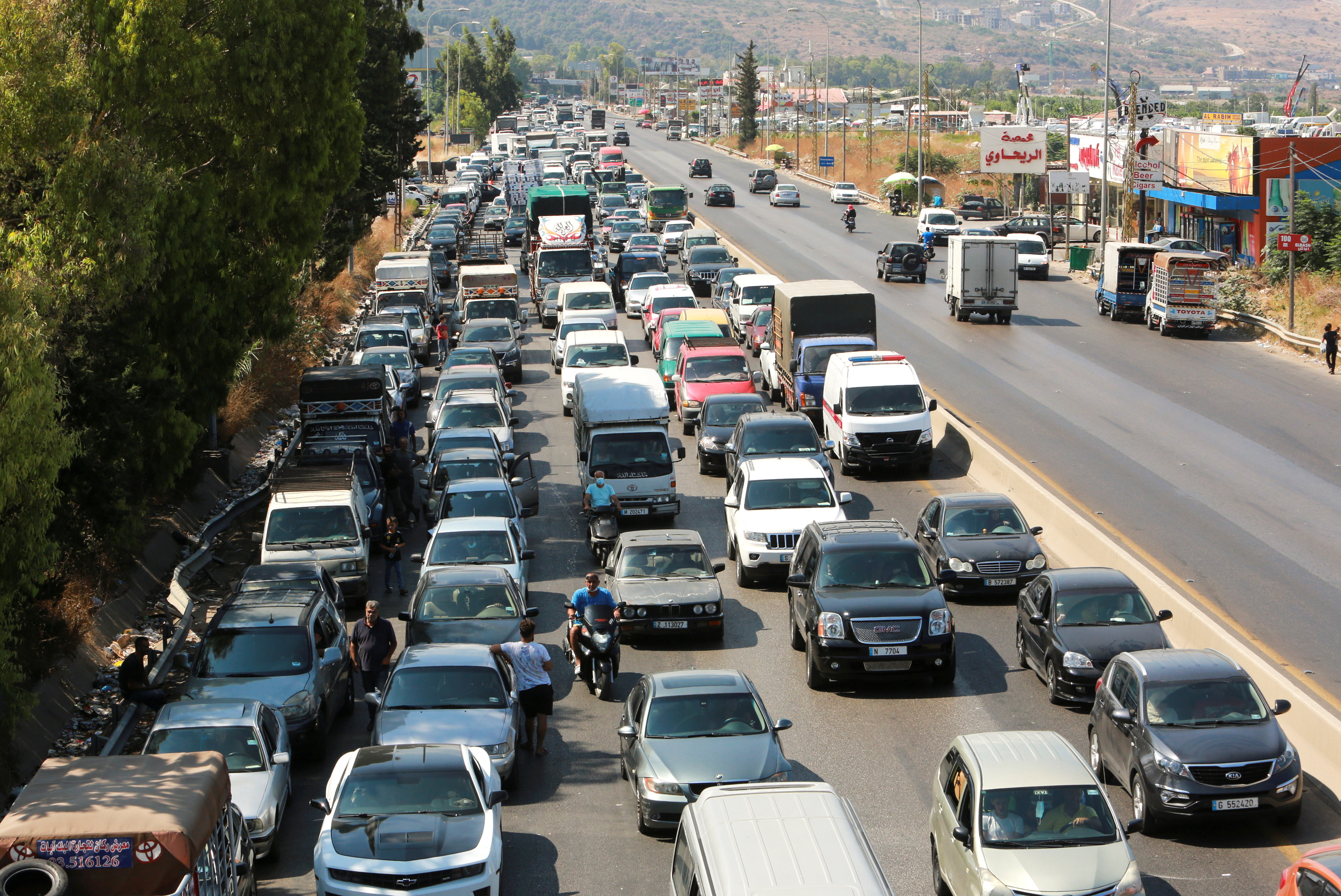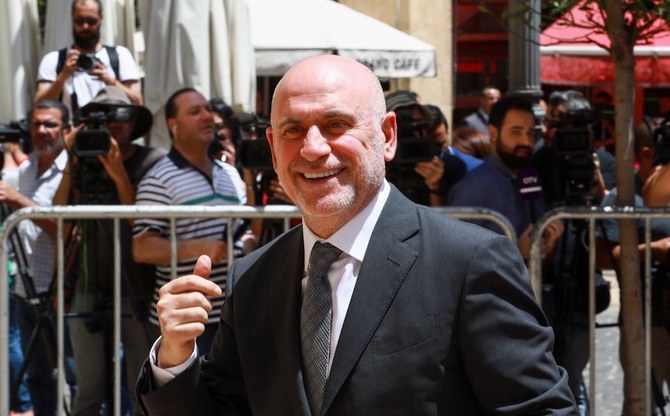
By Najia Houssari -- arabnews.com -- BEIRUT: Three radio stations and a TV channel in Lebanon have been forced to temporarily suspend broadcasting due to the country’s fuel crisis, with a government minister saying she had requested support for media outlets but to no avail. Information Minister Manal Abdel Samad said: “Even Radio Liban, which speaks on behalf of the state, stops broadcasting whenever the electricity is cut off from the transmission centers spread across all Lebanese territories, and the government-owned Télé Liban (TL) will gradually stop broadcasting. The TL administration said that broadcast is being suspended between midnight and seven in the morning in order to save on fuel.” She added that she had “sent letters to the minister of energy and the army commander, requesting support for official and private media institutions, but neither responded.” Radio Sawt El-Shaab, which is not affiliated with any political party, announced on Friday evening that it would temporarily suspend its programs due to the fuel crisis and because its guests could not reach its headquarters in Beirut. Radio Al-Sharq and Future TV, both of which are affiliated with the Future Movement political party, also suspended broadcasting. Radio Al-Sharq’s director, Kamal Richa, told Arab News: “The radio station, which was established in 1994, has never stopped broadcasting. But we had to turn off our generators due to the shortage of diesel, and the broadcasting stopped a few days ago.”
Both outlets are owned by former Prime Minister Saad Hariri. They faced a severe financial crisis years ago that led to a large number of employees being laid off and TV content being limited to shows from the archive, while 22 employees remain at the radio station. Richa added: “The radio administration secured on Saturday a quantity of diesel and informed us that we can resume broadcasting on Sunday, starting at seven in the morning. However, we might have to stop broadcasting again, as nothing is guaranteed in Lebanon.”
On Tuesday, Lebanese Army Command announced that “a three-day crackdown” carried out by units in various regions had resulted in the seizure of 4,392,725 liters of gasoline and 221,140 liters of diesel that had been stored for smuggling or for sale, either on the black market or at high prices after fuel subsidies were lifted. “The owners of these quantities were obliged to either sell them at the subsidized price or they would be seized and given to hospitals, bakeries, and private generators that have stopped working or are about to stop,” it said. The Audio-Visual Media Workers Syndicate appealed to Abdel Samad “to seek with those concerned to find a special mechanism that allows workers to obtain gasoline, to facilitate the task of media professionals.”

BEIRUT, (Reuters - Laila Bassam) - Lebanese fuel prices are expected to double after the state decided on Saturday to change the exchange rate used to price petroleum products in a bid to ease crippling shortages that have brought Lebanon to a standstill. Amounting to a partial reduction in fuel subsidies, the rise will mean more hardship in a country where poverty levels have soared during a two-year-long financial meltdown that has wiped more than 90% off the value of the Lebanese pound. The decision was made at an emergency meeting attended by the president, central bank governor and other officials over a fuel crisis that has left Lebanon in chaos, paralysing basic services and sparking daily melees as people scramble for fuel. Though prices will rise, the decision did not fully lift the exchange rate for pricing fuel to the exchange rate at which the central bank will finance its import - a gap which the state will continue to finance, for now.
A statement said the central bank will open an account to for that purpose up to a maximum of $225 million until the end of September - funds the government will have to pay back in the 2022 budget. The account was to cover an "urgent and exception subsidy" for gasoline, fuel oil and cooking gas, the bank said. The fuel subsidy would only continue until the end of September, a ministerial source said. President Michel Aoun confirmed the treasury would bear the cost of the continued subsidy.

By TAREK ALI AHMED -- arabnews.com -- BEIRUT: “How’s your Tuesday going?” reads the caption on an Instagram post, featuring a Lebanese woman sprawled on a sun lounger beside a glistening pool, showing off her tanned legs under a bright Beirut sky. For most people in Lebanon, Tuesday was the same as any other day in recent months — hours spent waiting in line at the petrol station, queuing for subsidized food products at the supermarket, topped off by a long, sweltering night’s sleep on the balcony during yet another blackout. But a brief scroll through the feeds and stories of numerous Lebanese Instagrammers reveals a world of lavish weddings, rooftop parties at venues where a bottle costs as much as a waiter’s monthly salary, and vacation getaways to Italy and Greece. At first glance, one would think the country is doing just fine. It is not.
World Bank data shows that Lebanon’s economy contracted by 20 percent over the course of 2020, with a further 9.5 percent contraction forecast this year. This makes the country’s economic crisis one of the world’s most severe — in relative terms — since the mid-19th century. Coupled with the collapse of the Lebanese pound, which has lost more than 90 percent of its value on the black market, households that could once afford an annual vacation to Turkey or Cyprus can now barely scrape together enough to put food on the table. “I think there’s a natural need for validation, especially for people that come from societies where the value of the self and one’s worth depends highly on social perceptions,” Selma Zaki, a licensed Lebanese psychotherapist, told Arab News. “Social media gives us that attention and that validation.”

by arabnews.com -- BEIRUT: A Lebanese former minister wanted for questioning over his alleged involvement in the August 2020 Beirut blast has sparked anger for requesting anti-riot police to guard his daughter’s wedding. A leaked Internal Security Forces’ (ISF) document showed Youssef Fenianos had asked for the security presence at the church where his daughter gets married on Saturday in case of political demonstrations. The document, published by VDL (Voice of Lebanon) news website, said the ISF agreed to dispatch two anti-riot units to Fenianos’s hometown of Ehden in northern Lebanon. The request provoked fury in Lebanon because Fenianos is being investigated over the explosion last year that killed more than 200 people. There is also widespread anger at the ruling class, which is seen as corrupt and responsible for the country’s economic collapse.
Lebanon is now crippled by widespread power black outs and fuel shortages. Fenianos was accused on social media of disrespecting the blast victims’ families and using his political influence to protect the wedding from protests. The massive explosion took place when 2,750 tons of ammonium nitrate was detonated by a fire at Beirut Port. The chemical had been stored at the site for more than seven years without proper safety precautions. Fenianos, a former public works and transportation minister, was one of three MPs and former ministers charged by the blast’s investigating judge Tarek Bitar.
Khazen History


Historical Feature:
Churches and Monasteries of the Khazen family

St. Anthony of Padua Church in Ballouneh
Mar Abda Church in Bakaatit Kanaan
Saint Michael Church in Bkaatouta
Saint Therese Church in Qolayaat
Saint Simeon Stylites (مار سمعان العامودي) Church In Ajaltoun
Virgin Mary Church (سيدة المعونات) in Sheilé
Assumption of Mary Church in Ballouneh
1 - The sword of the Maronite Prince
2 - LES KHAZEN CONSULS DE FRANCE
3 - LES MARONITES & LES KHAZEN
4 - LES MAAN & LES KHAZEN
5 - ORIGINE DE LA FAMILLE
Population Movements to Keserwan - The Khazens and The Maans
ما جاء عن الثورة في المقاطعة الكسروانية
ثورة أهالي كسروان على المشايخ الخوازنة وأسبابها
Origins of the "Prince of Maronite" Title
Growing diversity: the Khazin sheiks and the clergy in the first decades of the 18th century
Historical Members:
Barbar Beik El Khazen [English]
Patriach Toubia Kaiss El Khazen(Biography & Life Part1 Part2) (Arabic)
Patriach Youssef Dargham El Khazen (Cont'd)
Cheikh Bishara Jafal El Khazen
Patriarch Youssef Raji El Khazen
The Martyrs Cheikh Philippe & Cheikh Farid El Khazen
Cheikh Nawfal El Khazen (Consul De France)
Cheikh Hossun El Khazen (Consul De France)
Cheikh Abou-Nawfal El Khazen (Consul De France)
Cheikh Francis Abee Nader & his son Yousef
Cheikh Abou-Kanso El Khazen (Consul De France)
Cheikh Abou Nader El Khazen
Cheikh Chafic El Khazen
Cheikh Keserwan El Khazen
Cheikh Serhal El Khazen [English]
Cheikh Rafiq El Khazen [English]
Cheikh Hanna El Khazen
Cheikha Arzi El Khazen
Marie El Khazen